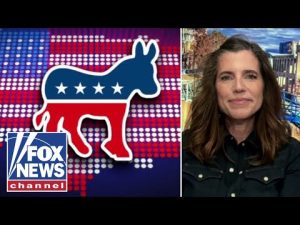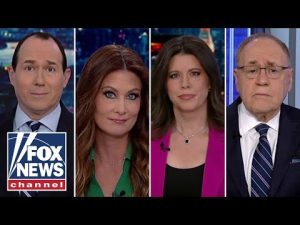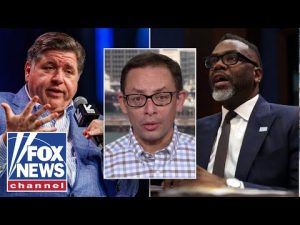In the latest swirling kettle of political drama, we turn our eyes to a federal appeals court ruling that’s bound to raise some eyebrows—or perhaps, fuse some circuit boards—among enthusiasts of tariffs and trade talks. The court, it seems, has declared most of these tariffs illegal by a 7-4 decision. Now, considering that six out of the seven judges in the majority were appointed by Democratic presidents, one can’t help but think of a classic, old-time Hollywood Western, where the outcome was obvious once the black hats trotted in. Such a partisan underpinning in the judicial system is almost charmingly quaint if only it weren’t so troubling.
Enter stage right, Peter Navarro, a White House senior counselor, expertly tying these developments to the larger narrative of national disaster. It’s hard to argue against his colorful image of courtroom shenanigans, filled with “politicians in black robes.” There’s something theatrical about it, isn’t there? The kind of saga where a group of small importers and 12 blue states supposedly have teamed up to challenge the might of Trumpian tariffs. And in classic whodunnit style, he points out a monetary trail leading to the notorious anti-Trump Koch network. Perhaps if this was a novel, Navarro could be a detective solving crimes of trade and economics injustice.
The arguments likely to be spun before the Supreme Court are, in essence, about whether the situation demands a strong national response. With levels of fentanyl deaths climbing and a trade deficit looming like a financial monster under the bed, Navarro insists there’s an emergency underway. The idea is that these tariffs are like a fortified shield—albeit confusingly described as both impermanent and crucial. If China and other nations were to stop their questionable dealings, these tariffs could simply vanish, he assures us. But as of now, Navarro holds, removing tariffs would be akin to slicing away the very fabric holding the nation’s economy together.
Meanwhile, on the broader stage of international relations, India finds itself in the spotlight, facing scrutiny for its trade dealings with Russia. The news of a whopping 50% tariff against India garners mixed feelings. On one hand, there’s the hope that it might curb Vladimir Putin’s warmongering funding. On the other hand, there’s the rational perspective that questions whether higher tariffs might actually bite the hand that feeds. It’s quite a delicate dance of diplomatic pressures and economic interests, one threading through a complex tapestry of global politics and alliances.
Amid the hustle of these international economic showdowns, we also find narratives of personal and governmental integrity under scrutiny. The call for accountability echoes through the corridors of power as the Federal Reserve finds itself under a lens for governance. President Trump’s previous decisions crop up, with Navarro presenting a scenario straight out of a courtroom drama involving apparent malfeasance and the President’s authority to act swiftly. It’s mystery, intrigue, and policy wrapped into one. Who knew international trade and tariff law could read so much like a cross between a thriller and a courtroom showdown? In this story, it seems, the stakes are high and the plot is still unfolding.







